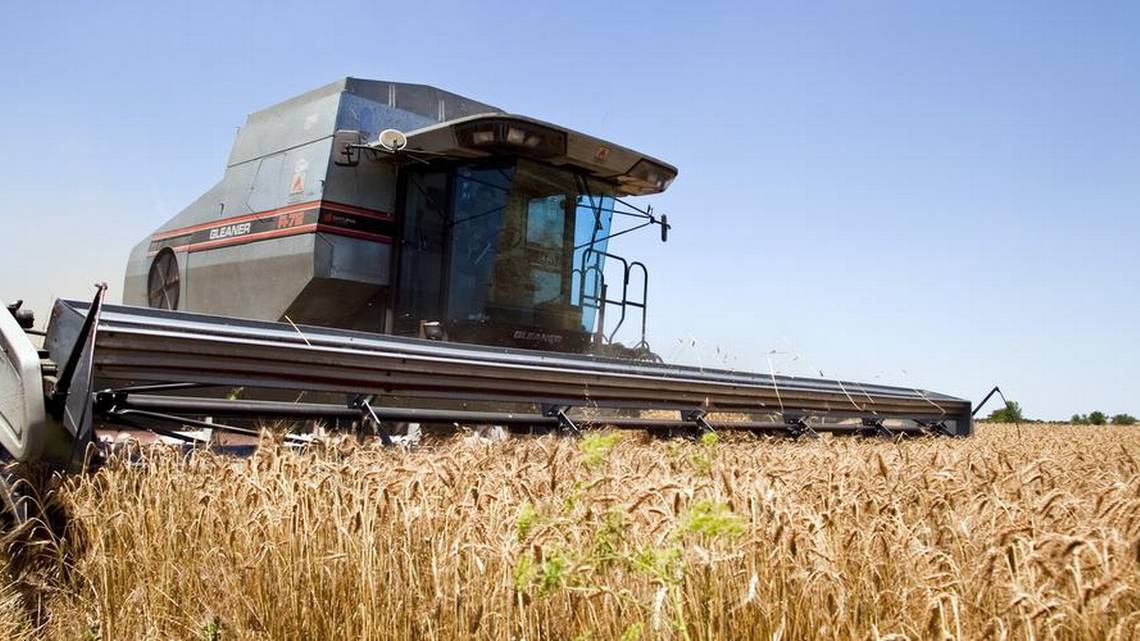by Mike Callicrate and Karen Stillerman | August 30, 2018
The Kansas town of Pretty Prairie has gained national attention for the wrong reason: as documented by Harper’s Magazine earlier this year, this community of 600 has a tap water crisis caused by decades of farm runoff. Its problem is particularly severe, with drinking water nitrate levels at twice the federal safe limit and no budget for cleanup. But in other ways, the town’s challenges are common. The confluence of pollution, low commodity prices, and natural disasters are putting the survival of many of the nation’s farms and rural communities at risk.
Across the Midwest, cities and towns must spend exorbitant sums of money on water treatment systems to remove the nutrients that have migrated from farms into drinking water supplies. Meanwhile, persistently low crop prices have shrunk farm incomes. Many farmers are just one tariff or natural disaster away from bankruptcy and loss of the farm.
But two members of Kansas’ congressional delegation—Sen. Pat Roberts and Rep. Roger Marshall, whose district includes Pretty Prairie—are in a position to help not only their own constituents, but farmers and farming towns across the country. They are serving on a conference committee hammering out a farm bill that, if crafted thoughtfully, will address many of the problems farmers are facing.
The origins of many of these problems date back decades. Since the 1970s, federal farm policies have created incentives that have led to a glut of a few crops, such as wheat, corn and soybeans, causing their prices to plummet. At the same time, this way of farming has eroded our soil and depleted and degraded our water. A different agriculture system could decrease Kansas’ dependence on commodity markets, buffer the state and its farmers from economic shocks, clean up drinking water sources, and pave the way for a brighter rural future.
What would it take? For starters, farmers need incentives to diversify their farms with more varieties of crops and livestock, and infrastructure is needed to help foster new local and regional markets for their products. Farmers also could use more financial assistance to boost soil health using practices based on agroecology. Scientists at Kansas State University and across the country are refining these practices, which slash nitrogen runoff, increase farms’ resilience to floods and droughts, and keep productivity high.
The bipartisan farm bill crafted by Sen. Roberts, which was passed overwhelmingly by the Senate in June, takes important steps in this direction.
But Sen. Roberts is leading conference committee negotiations with Rep. Marshall and other House members whose vision is different. The House farm bill is most controversial for its attack on the Supplemental Nutrition Assistance Program (formerly known as the food stamp program). But it also leaves farmers vulnerable to low-priced commodities, scraps conservation incentives, and does nothing to help create new local marketing opportunities.
The outcome of negotiations will determine whether agriculture stays on its current path or turns toward a new future. It’s striking to see bipartisan support for a new way forward. In the days ahead, Sen. Roberts and his Senate colleagues must stick to their guns and bring Rep. Marshall and other House negotiators to their side to ensure that Congress provides solutions that farmers want and that all of us—in Pretty Prairie and across the state—need.
Mike Callicrate is an independent cattle producer and business entrepreneur in St. Francis, Kansas, and a leader in addressing the rural, social, and cultural impacts of current economic trends in agriculture. Karen Stillerman is a senior analyst in the food and environment program at the Union of Concerned Scientists.













